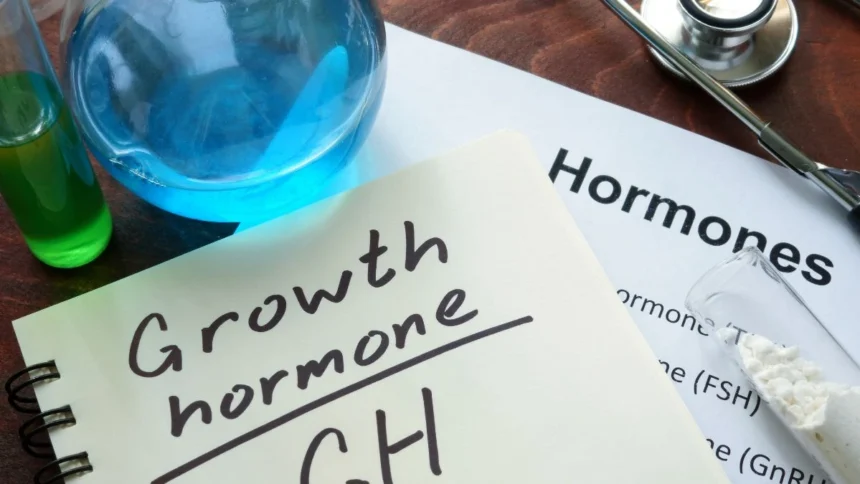Introduction
Hormones are vital chemical messengers in our bodies, influencing everything from growth and metabolism to mood and reproduction. Maintaining hormone health is crucial for overall well-being, as imbalances can lead to various health issues. Understanding how to support and regulate hormones is key to living a healthier life. In this article, we’ll explore the importance of hormone health, common symptoms of imbalances, and effective strategies to restore balance.
What Are Hormones?
Hormones are biochemical substances produced by endocrine glands like the thyroid, pituitary, adrenal, and pancreas. They travel through the bloodstream, sending signals to tissues and organs to regulate many functions. When hormones are in balance, the body functions optimally. However, any disruption can have significant effects on our hormone health.
Signs of Hormonal Imbalance
Hormonal imbalances can manifest in various ways, affecting both physical and mental health. Recognizing these signs early is vital for addressing issues and restoring hormone health. Common symptoms include:
- Weight Fluctuations: Unexplained weight gain or loss can be a sign of hormonal issues, particularly with insulin, cortisol, and thyroid hormones.
- Mood Swings: Imbalances in hormones like serotonin, estrogen, and testosterone can lead to mood disorders, including anxiety and depression.
- Fatigue: Persistent tiredness, even with adequate rest, may indicate issues with thyroid function or adrenal fatigue.
- Digestive Problems: Hormones like cortisol affect digestion, leading to problems such as bloating, constipation, or diarrhea.
- Skin Issues: Acne, dryness, or excessive oiliness can be linked to fluctuations in hormones like estrogen, progesterone, and androgens.
Common Causes of Hormonal Imbalances
Several factors can disrupt hormone health, leading to imbalances. Some of the primary causes include:
- Poor Diet: High sugar and processed food intake can affect insulin and cortisol levels, destabilizing hormone health.
- Stress: Chronic stress raises cortisol levels, which can disrupt the balance of other hormones like estrogen and testosterone.
- Lack of Sleep: Inadequate sleep affects hormone production, including growth hormone, insulin, and cortisol.
- Sedentary Lifestyle: Lack of physical activity can lead to hormonal imbalances, especially affecting insulin sensitivity and stress hormones.
- Environmental Toxins: Exposure to endocrine disruptors, such as pesticides and plastic chemicals, can interfere with hormone health.
How to Achieve Optimal Hormone Health
Achieving balanced hormone health requires a combination of lifestyle changes, dietary adjustments, and sometimes medical intervention. Here are some effective strategies to help balance your hormones:
1. Adopt a Nutrient-Rich Diet
A balanced diet is fundamental for supporting hormone health. Focus on whole foods, including:
- Healthy Fats: Incorporate sources of omega-3 fatty acids, like fish, flaxseed, and walnuts, which are essential for hormone production.
- Fiber-Rich Foods: Consuming enough fiber helps regulate estrogen levels by promoting better digestion and elimination of excess hormones.
- Protein: Adequate protein intake supports hormone synthesis and maintains muscle mass, essential for overall metabolic health.
2. Manage Stress Effectively
Chronic stress is a major disruptor of hormone health. Practicing stress management techniques can significantly improve hormone balance. Some effective methods include:
- Mindfulness and Meditation: These practices can reduce cortisol levels and promote relaxation.
- Regular Exercise: Physical activity helps lower stress hormones and releases endorphins, improving mood and hormone balance.
3. Prioritize Sleep
Sleep is crucial for regulating hormone levels. Poor sleep disrupts the body’s circadian rhythm, impacting the production of hormones like cortisol, melatonin, and insulin. Aim for 7-8 hours of quality sleep each night to support hormone health.
4. Exercise Regularly
Regular exercise not only boosts mood and energy but also helps maintain optimal hormone health. Different types of exercise have various benefits:
- Strength Training: Improves insulin sensitivity and increases testosterone levels.
- Cardio: Enhances cardiovascular health and lowers cortisol levels.
- Yoga: Promotes relaxation, reduces stress, and balances stress hormones.
5. Consider Supplements
In some cases, dietary supplements can support hormone health. Common options include:
- Vitamin D: Supports thyroid health and helps balance sex hormones.
- Magnesium: Regulates cortisol and aids in stress management.
- Omega-3 Fatty Acids: Reduces inflammation and supports hormone production.
Before starting any supplement regimen, consult with a healthcare provider to ensure it is safe and suitable for your needs.
When to Seek Medical Help
While lifestyle changes can significantly improve hormone health, some conditions may require medical intervention. If you experience severe or persistent symptoms, consult an endocrinologist or healthcare professional. Conditions such as polycystic ovary syndrome (PCOS), thyroid disorders, and adrenal insufficiency often require targeted treatments.
Conclusion
Maintaining optimal hormone health is essential for overall well-being and a balanced life. By making mindful lifestyle choices, managing stress, and seeking medical advice when needed, you can effectively support your body’s natural hormonal processes. Embrace these changes today to achieve better hormone health and enjoy a healthier, more vibrant life.
Get more info: https://www.timelinetale.com/


